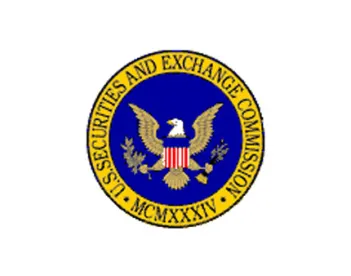In a long-awaited decision, a three-judge panel of the U.S. Court of Appeals for the District of Columbia Circuit (DC Circuit) reaffirmed its prior decision, striking down one aspect of the SEC’s conflict minerals disclosure rule as unconstitutional compelled speech. In April 2014, the three-judge panel had ruled that the requirement for reporting companies to identify their products as “not found to be ‘DRC conflict-free’” represented compelled commercial speech in violation of the First Amendment and could not be enforced by the SEC as part of its conflict minerals disclosure rule. The three-judge panel subsequently agreed to rehear the case and revisit its prior ruling in the wake of a decision last summer by the full DC Circuit in another commercial speech case, American Meat Institute et al. v. U.S. Dep’t of Agriculture, which had rejected a challenge by meat industry groups to a government-imposed country-of-origin labeling requirement. In this Legal News Alert, we address key questions that yesterday’s decision by the DC Circuit likely raises for companies that have been dealing with the SEC’s conflict minerals disclosure rule and the reporting obligations it imposes.
How does this decision impact my reporting obligations with the SEC for next year? Should I be changing my existing procedures or asking for anything different from my suppliers?
This decision essentially preserves the status quo that has existed since the three-judge panel’s initial April 2014 decision striking down the “not found to be DRC conflict-free” disclosure requirement. Therefore, pending the issuance of any new or revised guidance by the SEC, the SEC’s April 29, 2014 Statement (the SEC Statement) — which has governed the reporting requirements for the first two years during which reporting has been required — still applies. Accordingly, yesterday’s decision should not necessitate changes to the existing reporting and compliance procedures that companies have established to comply with the rules as modified by the SEC Statement. Moreover, non-SEC reporting companies that are not covered by the SEC disclosure rule itself, but face customer-imposed reporting obligations to facilitate reporting by upstream customers, should not expect to see changes in the type of information regarding conflict minerals sourcing or smelters/refiners requested by their customers as a result of the decision.
In accordance with the SEC Statement, reporting companies are not currently required to identify products in their conflict minerals reports as “DRC conflict free,” “not found to be ‘DRC conflict free’” or “DRC conflict undeterminable.” The SEC Statement also indicated that independent private sector audits (IPSAs) would not be required, except for companies electing voluntarily to describe their products as “DRC conflict free.” Under the SEC’s original conflict minerals rule, that IPSA requirement would have been triggered as part of the conflict minerals reports filed by large reporting companies in the third reporting cycle — i.e., for their May 31, 2016 reports on conflict minerals sourcing during calendar year 2015. Yesterday’s decision makes it very unlikely that companies will need to obtain an IPSA for their calendar-year 2015 conflict minerals reports due next May, unless they intend to describe their products as “DRC conflict free.”
Does this mean the conflict minerals litigation is over, and that we’ll never have to describe our products as “not found to be ‘DRC conflict free’”?
In short, no. It is likely that yesterday’s decision is not the final word in this litigation, and that the litigation itself will extend beyond next year’s reporting deadline. While the SEC has yet to formally announce its plans in response to yesterday’s decision, it would be surprising if the SEC did not seek further review of the panel’s decision. The SEC’s next step likely will be to petition for a rehearing before the entire DC Circuit, which may well be a more favorable audience for the SEC on this commercial speech issue than the three-judge panel that rendered yesterday’s decision. The full DC Circuit upheld the USDA’s country-of-origin labeling requirement for meat products in July 2014 against a similar “compelled commercial speech” challenge by the meat industry, finding that the labeling requirement was “factual and uncontroversial.” The two-judge majority in yesterday’s decision took pains to note several features of the SEC’s conflict minerals rule that, in their view, distinguish it from the AMI meat-labeling decision, but the dissenting judge argued that the “not found to be ‘DRC conflict free’” label was essentially indistinguishable from the type of “factual” and “accurate” compelled disclosure that the entire DC Circuit had ruled permissible in AMI. It is far from certain whether yesterday’s result would survive review by the entire DC Circuit.
It will likely be several months before additional action is taken in this case. First, the entire DC Circuit must agree to accept the case for an en banc rehearing, and then it would likely take several additional months before the entire DC Circuit issues a ruling. (As a frame of reference, it took nearly four months for the DC Circuit to issue its July 29, 2014 en banc decision in the AMI meat-labeling case after having agreed on April 4, 2014 to rehear the case en banc.) Regardless of which side prevails in an en banc rehearing, the litigation could well continue through an appeal to the U.S. Supreme Court — especially since the DC Circuit is being asked to parse Supreme Court precedent on commercial speech issues. The Supreme Court may decide to clarify some of the issues raised by yesterday’s split panel decision, such as whether the more lenient Zauderer standard applied by the dissent applies only in the case of voluntary advertising or point-of-sale labeling (as interpreted by the majority), or whether it applies to any disclosure compelled by the government, including in annual reports filed on the company’s website (as interpreted by the dissent).
This whole conflict minerals reporting obligation is a drag. Any chance yesterday’s decision ends up spurring the repeal of the entire requirement?
Not very likely. The National Association of Manufacturers, the lead plaintiff in the litigation, has argued that the “name and shame” aspect of the rule is so fundamental to the underlying reporting regime that the SEC needs to reexamine the entire rule if it can no longer “shame” companies by forcing them to self-identify as “not found to be ‘DRC conflict free.’” However, yesterday’s decision does not expressly require the SEC to do so, and it limits its reach to the “not found to be ‘DRC conflict free’” label, leaving undisturbed the SEC’s ability to require companies to file annual reports describing the due diligence performed on their sourcing of conflict minerals. To date, legislative efforts to change or limit the rule have not seemed to gain much traction. Thus, the SEC’s conflict minerals reporting requirements appear likely to remain largely intact for the foreseeable future.
Moreover, even if the SEC’s conflict minerals reporting requirement were to disappear tomorrow, there remains significant pressure on companies to adopt and enforce responsible-sourcing policies, both from non-U.S. government bodies or agencies (such as the European Union’s own efforts to adopt conflict minerals reporting requirements) and from non-governmental interests (consumers, investor groups focused on socially responsible sourcing, non-governmental organizations, etc.). Companies should therefore assume that traceability of their conflict minerals will remain an important aspect of their supply chain due diligence, no matter the outcome of this litigation challenging the SEC’s conflict minerals rules.
We will continue to monitor the SEC’s reaction to the DC Circuit’s ruling and will provide additional guidance as the SEC takes steps to address the decision.






 />i
/>i
